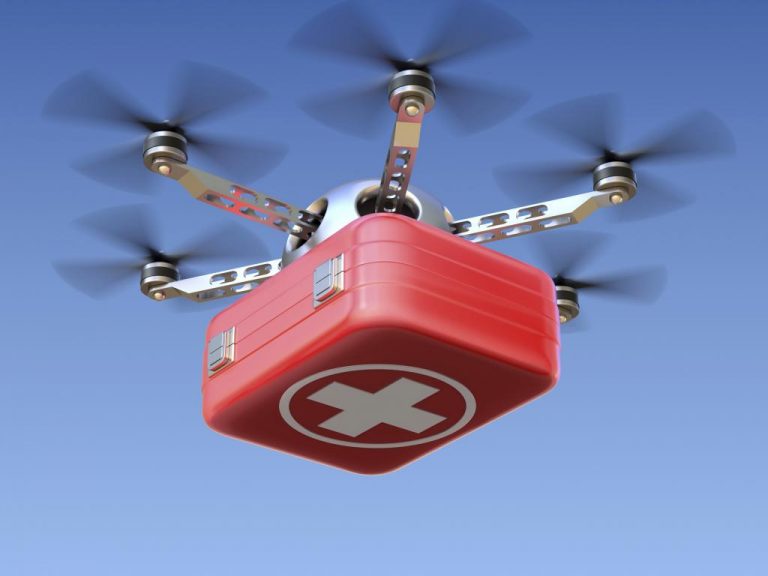Parliament approves medical drone agreement
Parliament has finally approved the drones for medical delivery deal after three failed attempts.
The Ghana Health Service (GHS) introduced the deal to help deliver blood and essential medicines across the country, especially to rural communities.
102 MPs voted for the deal while 58 dissented.
The GHS recently described the deal as extremely useful and called on all Ghanaians to support the idea.
Addressing a press conference on Tuesday, 4th December 2018, the Director-General of the GHS, Dr. Anthony Nsiah Asare expressed worry over the continuous politicization of government’s novel ideas by the opposition National Democratic Congress (NDC), even when they have little understanding of the matter.
Dr. Nsiah Asare further dispelled rumours that the project is expensive and would cripple the government’s budget. Rather, he said the project cost per service delivery of $17 is lower than what is currently being charged in Rwanda at $22.7 per delivery, and most importantly, would go a long way to save precious lives.
He was emphatic that this drone delivery service will come at zero cost to the government of Ghana budget, stressing that per the current arrangements, the cost will be borne by the corporate sector through their corporate social responsibility obligations.
As is done in Rwanda, Ghana seeks to use a drone delivery network, which will be run by the GHS and the Ministry of Health, to give Ghana the most advanced healthcare supply chain in the subregion.
The drones will operate 24 hours a day from 4 distribution centres across the country. The distribution centres will stock 184 life-saving and essential medical supplies including emergency blood and oxytocin to save women’s lives in childbirth. Postpartum haemorrhage is the leading cause of maternal death.
The others include emergency medicines for surgeries, severe infections, antivenins and anti-rabies, diabetic emergencies, extremely high blood pressure emergencies.
When one of the 2,500 health facilities covered by the new service runs out of a product, it will order an emergency delivery by a drone that will arrive in 30 to 40 minutes. The drones will not replace the existing supply chain.
Outlining the benefits of the system, Dr. Nsiah Asare observed that: “Ghana’s emergency medical drone delivery service will save tens of millions of Cedis by eliminating the need for expensive emergency trips to pick up health care products and by avoiding wasteful overstocking of products at health facilities.”
“This revolutionary healthcare service will help save lives, decrease waste in the system and increase healthcare access for more than 14 million people nationwide,” he indicated.
The drones and delivery service will be built and operated by Zipline, a California-based automated logistics company, which helped launch the world’s first national drone delivery service in Rwanda in October of 2016.
The medical drone delivery service has been so successful at decreasing waste, increasing access and saving lives that the government of Rwanda recently asked Zipline to quadruple the size of its operation there.
Zipline will employ 200 Ghanaians, including pharmacists, engineers, flight operations, and many more essential and allied support staff.
Zipline’s operation in Rwanda is already 100% run by Rwandans. Zipline has committed to 100% local employment in Ghana as well.
Zipline will build a training centre in Ghana to support all of Zipline’s Anglophone West African operations.
When asked what the contract obligate Zipline to do, Dr. Nsiah Asare answered that Zipline will build 4 distribution centers at MoH-specified locations across Ghana.
Each distribution centre will include at least 20 drones, launch and recovery equipment, state-of-the-art medical refrigeration equipment, and computerized order management systems. Each will be staffed by up to 50 Ghanaian employees.
Zipline must operate drone flights from the distribution centers on a 24/7 basis to deliver medical products on request to health facilities within an 80-km service radius.
Zipline will guarantee a capacity of 150 flights per Delivery Cost (DC) day. This means that the 4 distribution centers will be able to make up to 600 emergency deliveries per day total (and the flights can usually carry more than 1 product).
source: classfmonline.com



